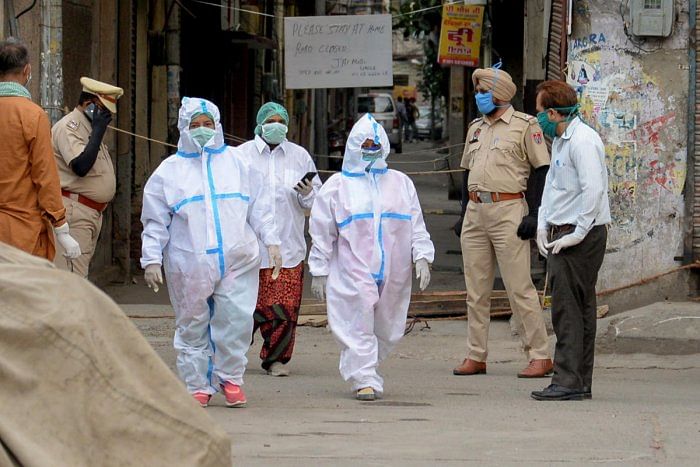
Tracking 80 per cent contacts of a Covid-19 patient in 72 hours and allowing states to implement staggered office timings in cities with higher positivity rate as well as imposing local measures like night curfew are among a slew of measures identified by the Centre in its new guidelines to tackle the surging pandemic.
States are also allowed to reduce the number of people attending social, religious, sports, entertainment, educational, cultural, religious and other gatherings to 100 in closed places from the existing ceiling of 200 based on the ground situation.
The 'Guidelines for Surveillance, Containment and Caution', which was issued by the Ministry of Home Affairs (MHA) on Wednesday against the backdrop of rising Covid-19 cases following festival season and onset of winter, will come into effect from December 1 and be in place till the month-end.
As per the guidelines, all activities, except a few, are allowed outside containment zones. International air traffic, barring those allowed by the MHA, will remain suspended while swimming pools will continue to be allowed only for training of sports persons. Exhibition halls will be allowed only for Business to Business purposes.
The guidelines, which put the onus on district, police and municipal authorities under the state governments for strict implementation, comes a day after Prime Minister Narendra Modi held a video conference with Chief Ministers on Covid-19 situation.
Amid concerns that the tracing of contacts have taken a back-seat, the new guidelines ask the states to ensure that listing of contacts are carried out in respect of all people found positive.
The guideline sets a 72 hour deadline for tracking, identifying and quarantining 80 per cent of the people who came in contact with a person tested positive for Covid-19.
The authorities should ensure quick isolation of patients in treatment facilities or their homes while clinical interventions shall be administered. Surveillance for cases of Influenza Like Illness (ILI) and Severe Acute Respiratory Infection (SARI) should be carried out in health facilities or outreach mobile units or through fever clinics in buffer zones.
States should ensure careful demarcation of containment zones, where only essential services should be allowed. Strict perimetre control should be ensured so that there is no movement in or out of these zones, except for medical emergencies and maintaining essential supplies, while intensive house-to-house surveillance and testing as prescribed should be conducted.
While allowing states to impose local restrictions like night curfew, the MHA has reiterated that the states cannot unilaterally declare lockdown outside containment zones at local or state-level without prior consultation with the Centre.
With more and more offices functioning following the unlocking of restrictions, the new guidelines said the states could consider implementing staggered office timings and other measures in cities where the positivity rate is more than 10 per cent.
As officials point out that there is laxity in adhering to Covid-19 protocols, the MHA told the states that they could consider administrative actions, including imposition of appropriate fines, on persons not wearing face masks in public and work spaces.
The Ministry of Health and Family Welfare (MoHFW) will also be issuing a Standard Operating Procedure for social distancing in crowded places, especially in markets, weekly bazaars and public transport.
An official statement said the main focus of the guidelines is to consolidate the substantial gains that have been achieved against the spread of Covid-19 which is visible in the steady decline in the number of active cases in the country.
"Further, keeping in view the recent spike in new cases in a few states/union territories, ongoing festival season and onset of winter, it is emphasised that to fully overcome the pandemic, there is need to maintain caution and to strictly follow the prescribed containment strategy, focussed on surveillance, containment and strict observance of the guidelines/SOPs issued by MHA and MoHFW," it said.
The guidelines also said there will be no restriction on inter-state and intra-state movement of persons and goods including those for cross land-border trade under treaties with neighbouring countries. No separate permission/approval/e-permit will be required for such movements.
Vulnerable persons -- persons above 65 years of age, persons with co-morbidities, pregnant women, and children below the age of 10 years -- are advised to stay at home, except for meeting essential requirements and for health purposes. The use of Aarogya Setu mobile application will continue to be encouraged, it added.
